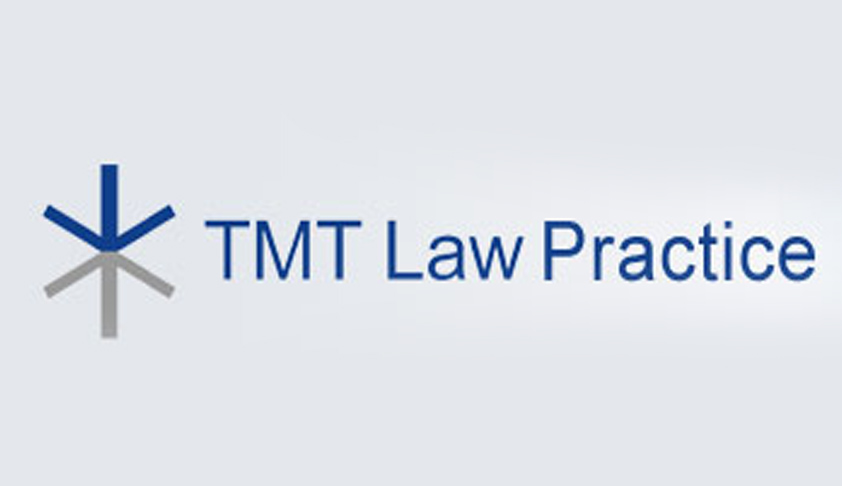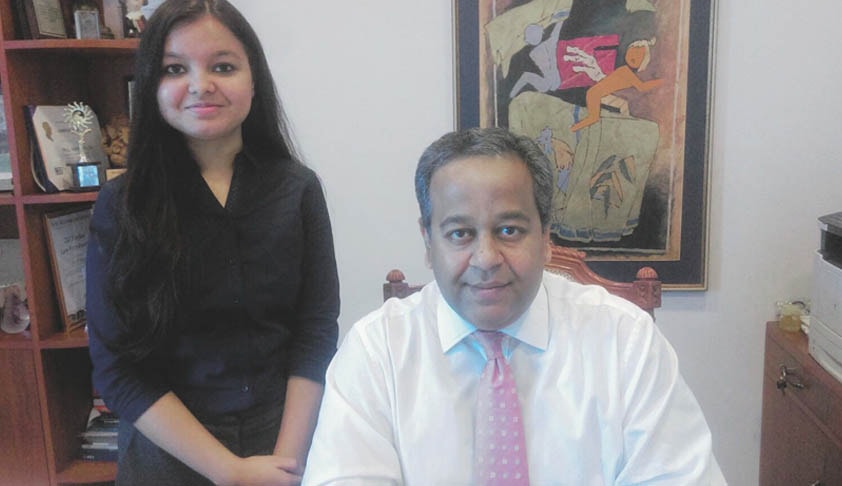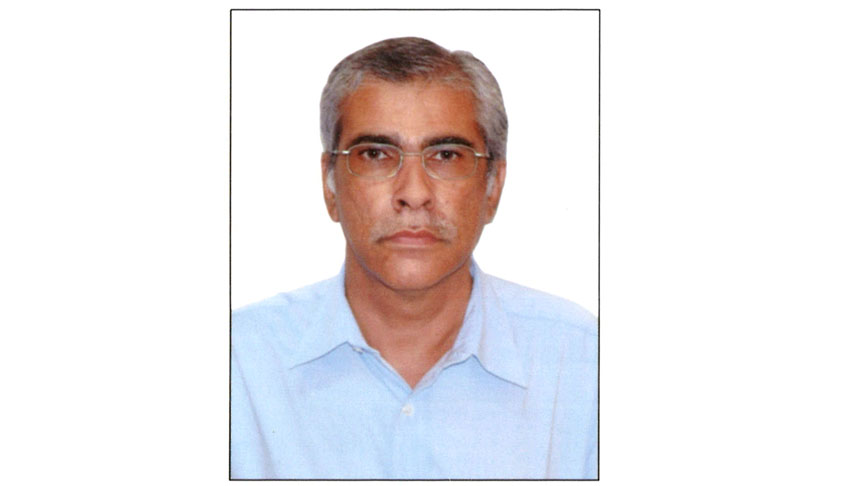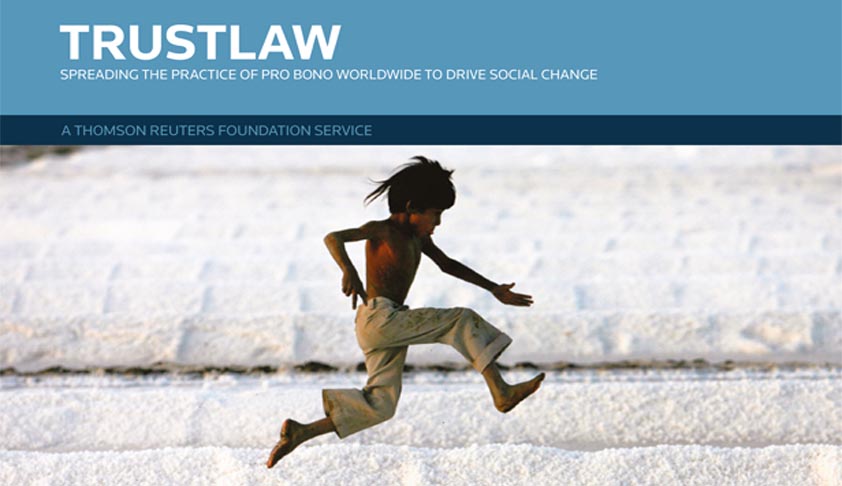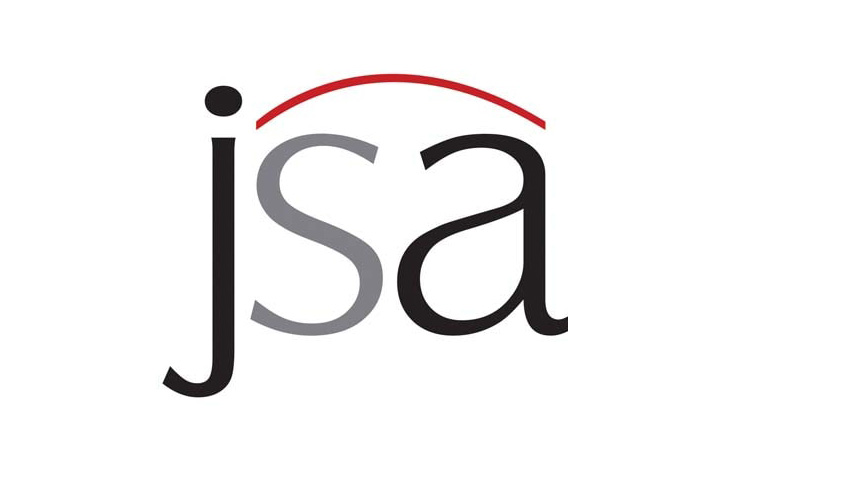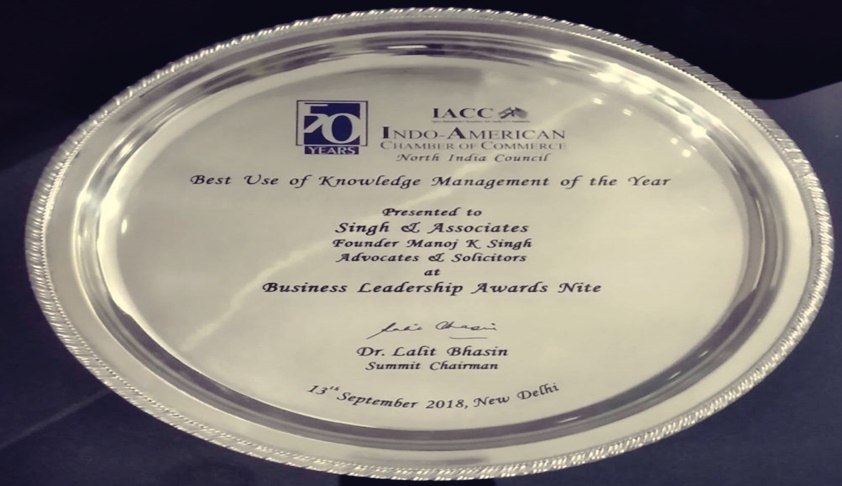![Raj A Kapadia]() Nikita Hora
Nikita HoraMr. Raj A Kapadia is the Head of International Taxation and Transfer Pricing at TATA STEEL LIMITED. He has an experience of around 35 years in the field of taxation. Mr. Kapadia did his LLB from Government Law College, Mumbai in 1983. He joined TATA International (previously known as TATA Exports) in the year 1981 and then came to TATA Steel Ltd in 2013. Since the beginning of his career he has been looking after tax matters. He is passionate in the field of Taxation and Constitutional Law. He is considered to be one of the most simple and knowledgeable persons in TSL, Mumbai office.
LiveLaw: Could you please tell us the reason for taking up taxation as your career, and about your journey throughout?
Mr. Raj A Kapadia: My foray into Taxation (Corporate Taxation at that!) was more by accident than design. In December 1981, I had joined Tata International in its Secretarial Division at Bombay, as a Techno-Commercial Trainee, in the hope of ultimately being assigned a function concerned with Law and, specifically, Litigation. However, Mr H H Malgham, then the Company Secretary, who had, after giving up the Chief Accountant's position, retained Corporate Taxation with him, had other ideas. He apparently saw something in me (which I still am unable to understand) which, according to him, qualified me to handle the Corporate Taxation function. Whatever little ability I have in that field today I ascribe entirely to Mr Malgham, who I regard as my mentor. However, although I kind of strayed into the function, I was completely fascinated by the sheer range of complex issues thrown up by ingenious taxpayers and the endless litigation emanating therefrom; it was, therefore, only a question of time before I threw myself body and soul into learning it (one does strange things in one's youth !). From there on, nature took over and I found I was flooded with so much work that I could barely find any time to read the law reports, which was ― and remains ― my abiding passion. This love for the law, litigation and law reports was inculcated in by my grandfather, Mr Raghavji Vallabhdas Kapadia, who was my first guru and to whom I owe almost everything that I know about the law (not really much). Because I took such a deep interest in Corporate Taxation, Mr Malgham ultimately handed over that function to me; that is how I am where I am today.
LiveLaw: You have immense knowledge of Constitutional Law as well as Taxation. Did you ever think about litigation or opening your own tax consultancy?
Mr. Raj A Kapadia: I am flattered by your very kind remarks ― remarks which I am sure I do not deserve, for the simple reason that my passion for both branches of the law, although insatiable even today, is not matched commensurately by the acquisition of actual knowledge in those fields. As regards establishing an independent practice in tax consultancy, I did not ever seriously consider that proposal. As I repeatedly point out, I do not believe that I have in me the high levels of competence required for a professional practice; also, in order to set up one's own practice, one needs to pupil under a competent senior ― I did not have the good fortune to come across one who would have me.
LiveLaw: Sir, I am sure your professional journey would have been exhilarating. What are the major challenges and hurdles that you have faced in your professional journey uptill now?
Mr. Raj A Kapadia: Although I have spent close to 3-1/2 decades in Corporate Taxation, my passion always was THE LAW; therefore, even today, I am more interested in the "legal" aspects of Corporate Taxation, rather than its accounting and financial side. All my responses are, therefore, coloured by the "legal" aspects of Corporate Taxation. Also, before addressing your query, let me say that it would be churlish on my part if I failed to point out the several advantages which I was fortunate to be conferred with, such as working with a professional and ethical business house, the maximum possible freedom in discharging my function, access to the best counsel etc. As regards the challenges and hurdles faced in my professional journey, they have been many and varied; I will therefore restrict myself to the most difficult one. The biggest challenge has always been ― and is ― access to resources; specifically, the latest developments in the legislative and judicial fields coupled with the ease in citing and reproducing them. While the onset of the digital age has certainly substantially bridged the time gap between the delivery of those developments and their availability to the public at large, that is not the same thing as saying that all such developments are available with dispatch. Even today, not all judicial decisions are reported; and, although it is true that they are available on the websites of the concerned courts, the poorly configured search engines of most of them limit, sometimes substantially, access to those decisions. Further, while judicial decisions of most of the economically advanced nations (UK, Australia, Canada) are available on the Web, the same cannot be said of the US, where access to court decisions was, until recently, given only upon payment of a fee. However, it is still difficult to find and retrieve relevant decisions (e g, all decisions dealing only with tax treaty provisions) from the websites of US Courts. In an era of increasing convergence of tax law across jurisdictions, this is certainly an anomaly. Coming to the ease of citing and reproducing judicial decisions, the Supreme Court has, in Eastern Book Company v D B Modak (2008) 1 SCC 1, held that headnotes, editorial notes, footnotes in law reports and inputs in the original text by the publisher in paragraph numbering, paragraphing, internal paragraph numbering, internal referencing, as also the introduction of phrases like “concurring”, “partly concurring”, “partly dissenting”, “dissenting”, “supplementing”, “majority expressing no opinion” etc, are copyright protected. Thus, while citation of reported decisions is the norm and that of unreported decisions only with leave of the court, reproduction, wholly or in part, of those very reported decisions is a challenge. The problem is compounded by the fact that while most of the reporters, such as the Income Tax Reports, Taxman, Current Tax Reporter, do provide to subscribers the soft copies of their reports, they do not provide them in the exact form that they appear in the printed reports. Consequently, the pagination of the printout of the soft copy of a decision reported in Taxman is usually at variance with the version of that decision appearing in the printed report, rendering difficult a reference to the page number of the printed report (with which method courts are comfortable) while referring to the print of the soft copy furnished to the court. The alternative is to present to the court at the time of hearing, photocopies of the decisions as set out in the printed reports. This exercise, apart from being cumbersome, exposes one to a possible action for violation of copyright insofar as the entire decision is reproduced and even more so to the extent that the headnotes are reproduced (albeit with credit to the source).
LiveLaw: In your opinion, what are the common hurdles that corporates face in the area of taxation?
Mr. Raj A Kapadia: These, again, are many and varied. However, the major hurdles are : the return of every year being subjected to assessment even after exacting tax audits having been undertaken by independent auditors, the difficulty in obtaining stays of demands arising from those assessments, the consequent appeals arising from those assessments, a bewildering multiplicity of proceedings resulting from the almost continuous subjecting of completed assessment of each year to reassessments, revisions, rectifications etc, assessments reaching finality after long years (stretching to 2 and 3 decades) etc.
LiveLaw: In your opinion, how will BEPS Actions by OECD change the tax regime globally and domestically? How much time will India take to implement the BEPS Actions?
Mr. Raj A Kapadia: The OECD's BEPS Actions certainly have the potential of rewriting substantially, if not comprehensively, the current century-old International Taxation regime. I may, however, clarify it that I (and many others) am still digesting the OECD's Final Reports and, therefore, my understanding of the several Actions is yet to get fully crystallised. Nonetheless, a reference to even some of the Actions would reveal how they can, upon implementation, change the face of current tax arrangements. Take, for example, Action 4 requiring the Limiting of Base Erosion Involving Interest Deductions and Other Financial Payments. While the concerns of the G20 countries and OECD as regards outlandish claims for interest deductions by taxpayers are entirely understandable, limiting those deductions on a presumptive basis to x or y % of the EBITDA, regardless of whether the interest is paid to affiliates or to entities in whose hands it would be tax-exempt, is perhaps going to the other extreme. I do believe that this Action alone, if implemented in the form proposed, is a veritable "garbha gruha" of massive litigation. Another example is Actions 8 to 10 dealing with the Aligning of Transfer Pricing Outcomes with Value Creation and, particularly, the proposal to permit tax officers to modify or ignore the provisions of agreements entered into between Associated Enterprises if their conduct is found to be at variance with the terms of those agreements. Again, no one can possibly have any quarrel with the intent of the Action, viz, to ensure the appropriate attribution of income to economic activities where they are actually undertaken rather than where the agreement states they arise. However, such a practically unbridled power conferred upon aggressively revenue-minded tax officers such as those belonging to the Indian tax administration is a sure recipe for ballooning and unending litigation. Another huge challenge is Action 13, which requires MNEs to prepare and furnish to the authorities, Country-by-Country ("CbC") Reports, Master Files and Local Files. Here, too, the reasons prompting their disclosure are unexceptionable; nonetheless, is there going to be an overreach ? In other words, is it that the compliance burden on MNEs will exceed the usefulness of the disclosures made by them ? One can only wait and see.
As to how much time India will take to implement the BEPS Actions, it is anyone's guess. The reasons are not far to seek : the BEPS Final Reports of October 2015 which lay out the Actions are not merely voluminous but merit deep study. Apart from that, whether at all to implement some of the Actions and, if so, when, in what form and to what extent, are not questions which admit of easy answers. My guess, therefore, is that the Actions will be enacted into law in phases.
LiveLaw: Will the implementation of BEPS Actions effect the tax practices followed by the corporates? How will it effect companies like TATA, Birla, Reliance, Airtel, Vodaphone etc.?
Mr. Raj A Kapadia: While company policy prevents me from speaking specifically with reference to TATA companies, insofar as Indian MNEs generally are concerned, the BEPS Actions implementation will certainly impact their operation. However, having regard to the fact that "egregious" tax planning was practiced more in the Western hemisphere, in view of the economies of the East having opened up only about a quarter of a century ago, the effects in India are not expected to be as drastic. Nevertheless, compliance burdens on Indian MNEs will multiply manifold, coupled with the litigation which will inevitably follow from the making of disclosures such as the CbC Report etc.
LiveLaw: Recently PM Modi in “Startup India Standup India, 2016” announced tax exemption on capital gains and three-year tax exemption for startups. What is your opinion on this development?
Mr. Raj A Kapadia: In the current world economic downturn, any initiative to promote new business in India ― and, hopefully, jobs ― is welcome. However, one wonders whether any attempt has been made to estimate the number of jobs likely to be created by startups consequent to the extension to them of the incentives. That apart, there is a larger issue involved here : does not the offering of tax incentives to startups fly in the face of Government's recent policy decision of lowering tax rates coupled with the withdrawal of tax incentives ?
LiveLaw: What are your expectations with the upcoming budget of 2016?
Mr. Raj A Kapadia: There are at least 3 key sectors of the economy which are crying for succour, viz, steel, shipping and agriculture. I would, therefore, believe that the Budget will attempt to address the concerns of these sectors. On the tax front, apart from implementing some of the BEPS Actions, I expect the Finance Minister to advance his agenda of phasing out incentives and simultaneously lowering the nominal tax rate (by how much, very difficult to tell, given fiscal constraints).
LiveLaw: Please comment on the infrastructure of the Revenue Department? How can it be improved in your opinion?
Mr. Raj A Kapadia: Given the fact that I am neither an employee of, nor otherwise a representative of, any Revenue Department, it would be presumptuous of me to comment on its infrastructure. However, from the limited perspective of an outsider who has been interacting with the Income-tax Department on a regular basis, I can say with confidence that matters have certainly improved from the early 1980s when I first started dealing with its officers. Offices are better ventilated, better lit, more roomy, better organized and, generally, the dingy, depressing overhang of the past has given way to a brighter and more welcoming workplace. Also, communication facilities have improved manifold with most officers having been provided with telephone and Net facilities commensurate with their requirements. However, the area in which, perhaps, a lot more remains to be done is the digitization of records and a sea-change in the work culture, both of which, I believe, are intertwined. Lest what I am saying be misunderstood, let me hasten to add that the responsibility can hardly be laid at the doors of either the current incumbents or even their predecessors; I believe that it is the system which we inherited which has given rise to these problems. Thus, had even a few very simple and easy-to-do tasks been implemented, perhaps the scenario would have been materially different. Examples of these tasks are : Scanning of all old records, using Optical Character Recognition ("OCR") technology. The benefits of this single step are : firstly, hard versions of documents will be required only for court proceedings, with the result that they can be stored in remote record rooms, thereby freeing up valuable office space; secondly, the scanned documents, having become searchable and replicable, will facilitate not only research but compilation of current documents such as assessment and appellate orders; thirdly, old documents required in pending litigation can, with the leave of the court, be furnished in the form of their scanned versions. Then, as regards compilation of current documents such as assessment, reassessment, rectification and appellate orders, application of the Extensible Markup Language ("XML") technology (and its offshoots) can yield rich dividends. However, this latter action requires training and discipline. Here, just one example should suffice : at present, while the broad layout and format of an assessment order has been standardized across the Department, its content and the structure thereof of that content differ from office to office and, sometimes, from officer to officer. If, however, the content can be standardized and inputted into specified fields, the data of the resulting documents will lend itself to categorization and conversion into databases, which, in turn, will facilitate research and analysis.
LiveLaw: What is your opinion on the Model Law on GST? Is it the right time to implement it in the India? How can the implementation be improved?
Mr. Raj A Kapadia: I am sorry, but, given that I deal with Corporate Direct Taxation, it would not be proper on my part to comment on the Goods and Service Tax ("GST"). Nonetheless, I was taught never to look a gift horse in the mouth ( !); I will therefore venture an opinion. I think the GST is arriving too late; the law ought to have been enacted and implemented years ago. Be that as it may, better late than never ! As for improving its implementation, we need first to accelerate its enactment, which can only be accomplished if there is a will on both sides of the aisle to take it to the finish line.
LiveLaw: Small Advice or few motivational words for young people who are willing to pursue a career in taxation.
Mr. Raj A Kapadia: This one's easy!! The law, it has been said, is a selfish mistress and, even if it is I who says it, taxation and the law of taxation are mistresses who will follow you to the grave but not themselves perish. Therefore, if you wish to pursue a career in taxation, remember, there is only one magic wand, viz, HARD WORK, 24x7. However, speaking specifically, one cannot overemphasise the need to be competent not only in taxation but to sport a more rounded persona. Thus, if one wishes to excel in taxation, it is important (as, if I remember correctly, Justice Benjamin Cardozo, late of the US Supreme Court, once said while advising an aspiring lawyer) not merely to read about taxation, but about life itself, as well as about the other branches of the law, such as constitutional law, company law, contracts law etc. A question might well be raised as to the relevance of, let's say, constitutional law in the field of taxation. While one can give several examples, just one should suffice : if and when BEPS Action 4 limiting deductions for interest is enacted, a question could arise as to whether the additional tax liability arising from its enactment is so excessive as to be confiscatory and/or expropriatory, and hence beyond Parliament's legislative competence.
Thank you so much sir for your time and consideration. We wish you all happiness and health in future.
The post In Conversation with Raj A. Kapadia, Head of International Taxation and Transfer Pricing at TATA STEEL LIMITED appeared first on Live Law.
